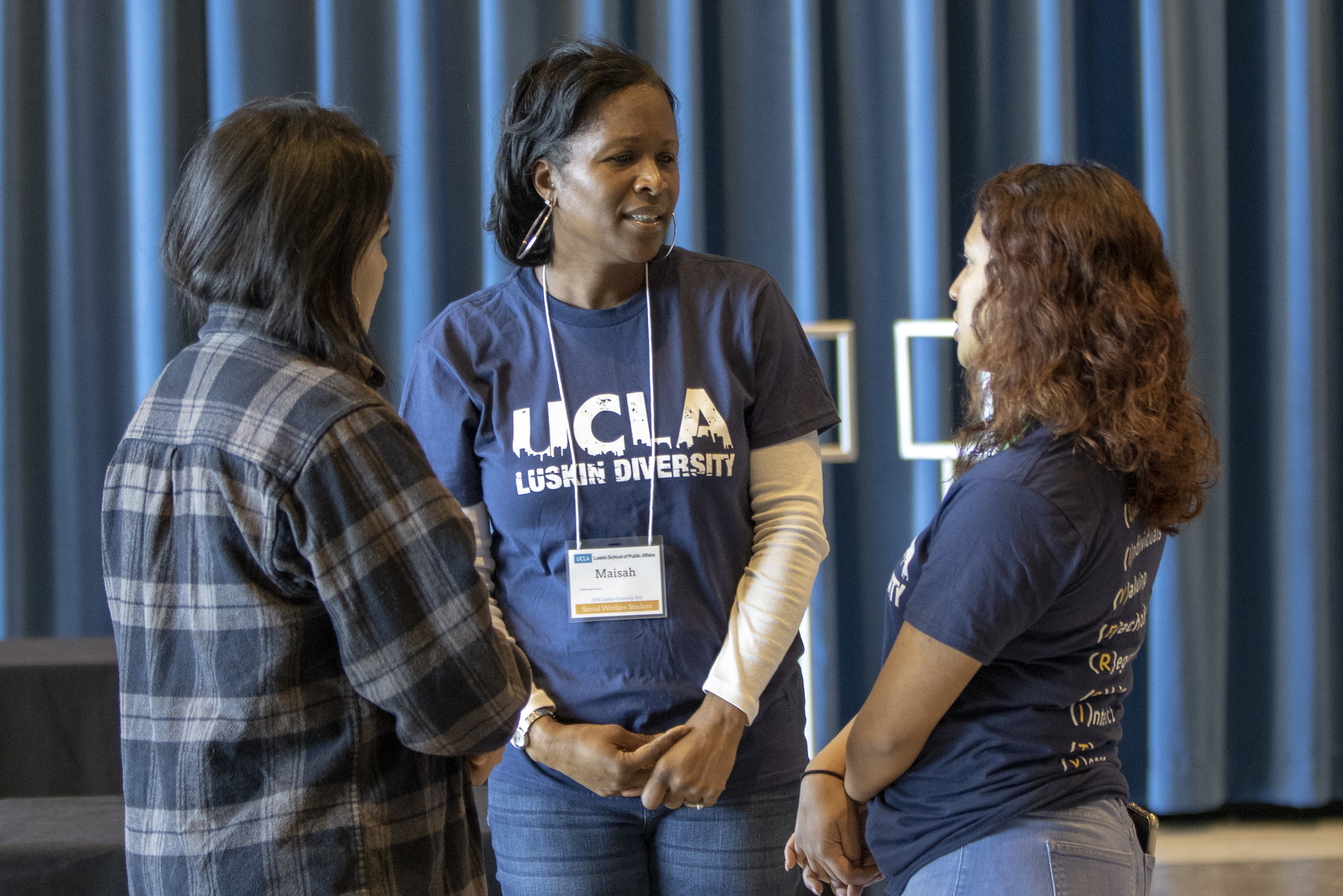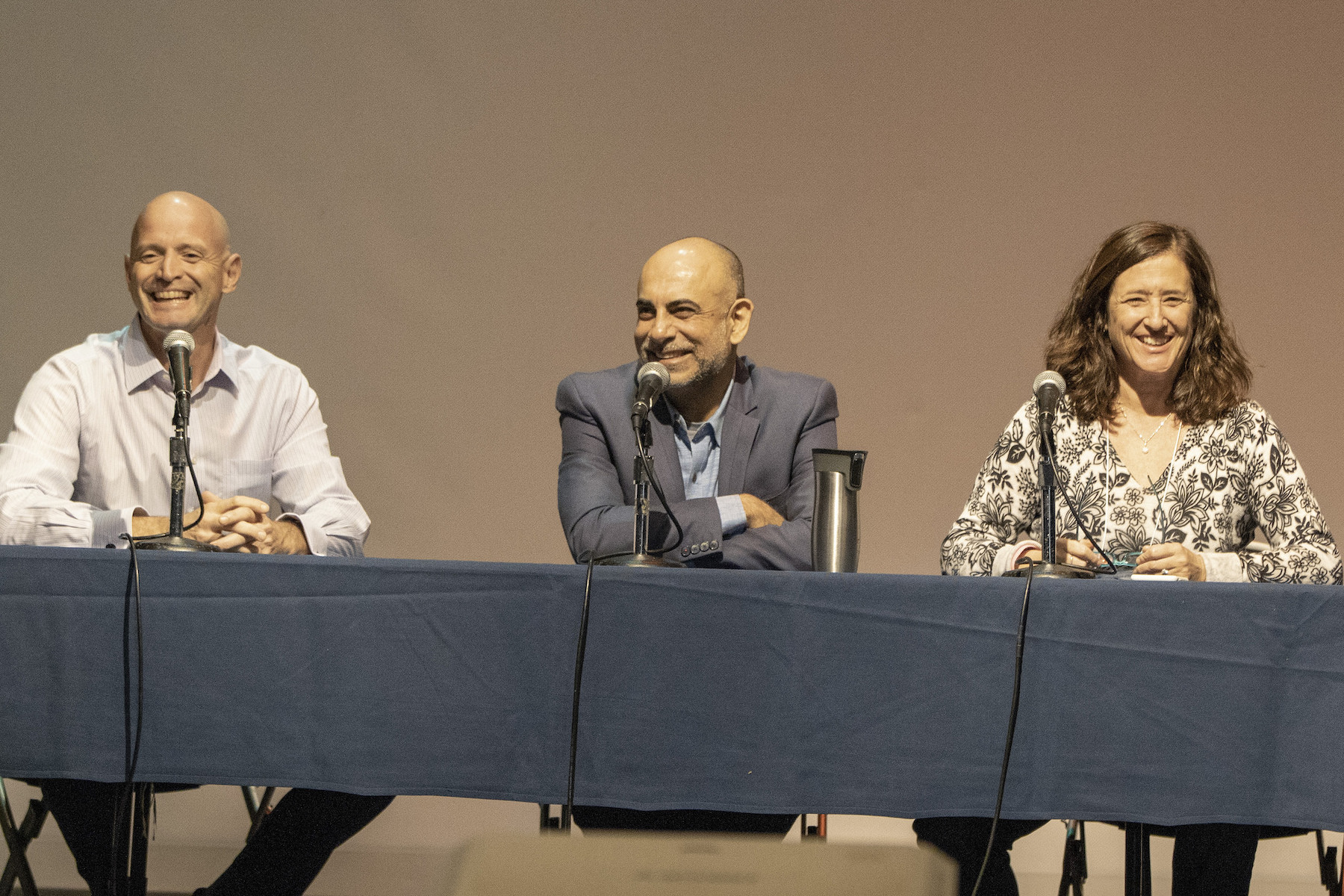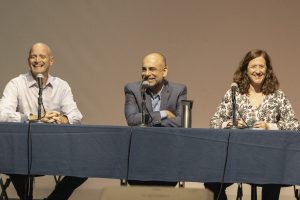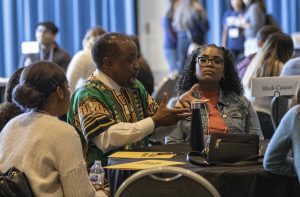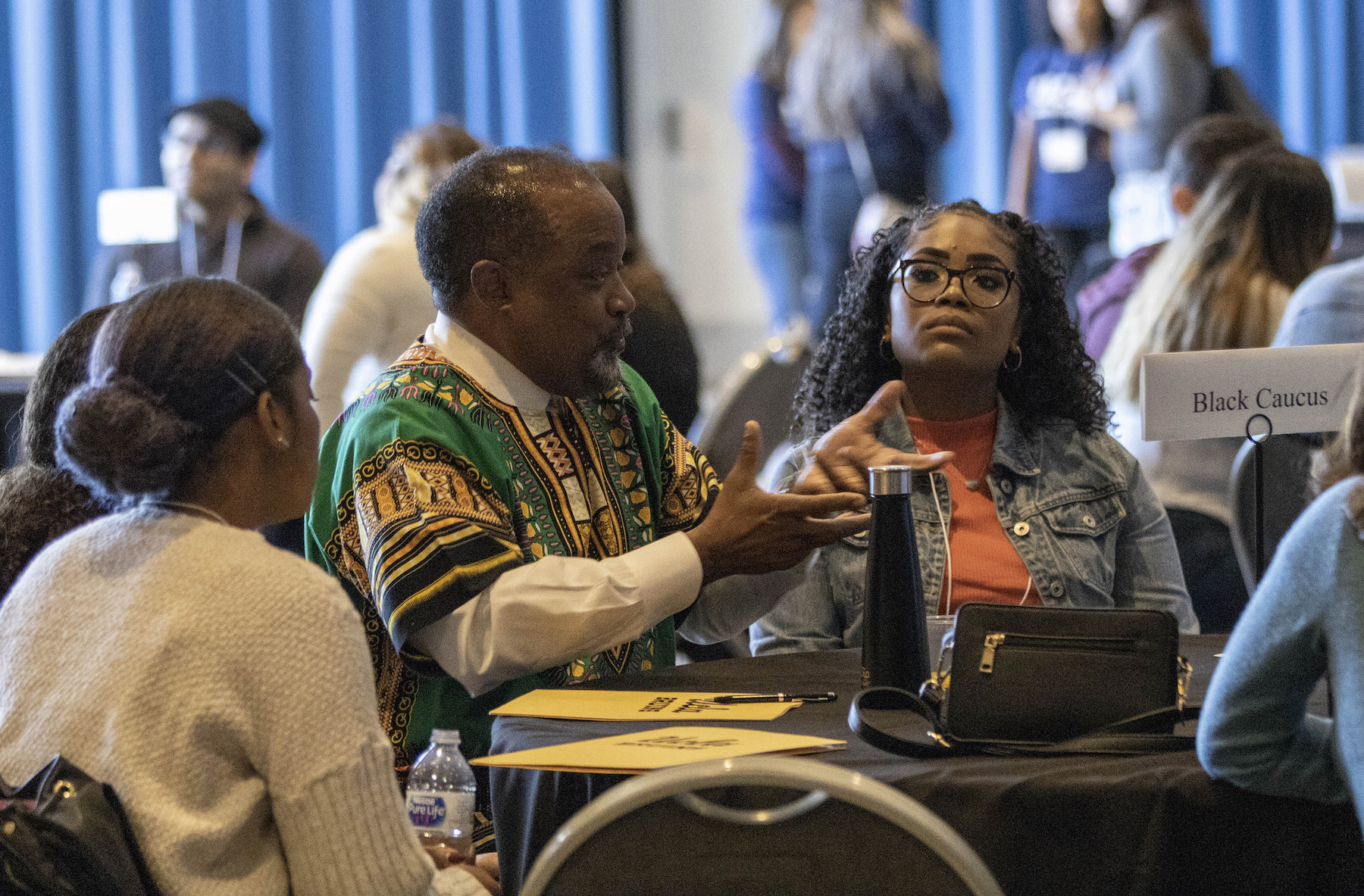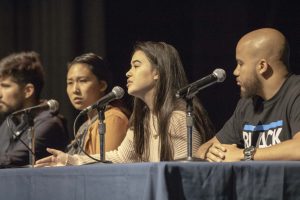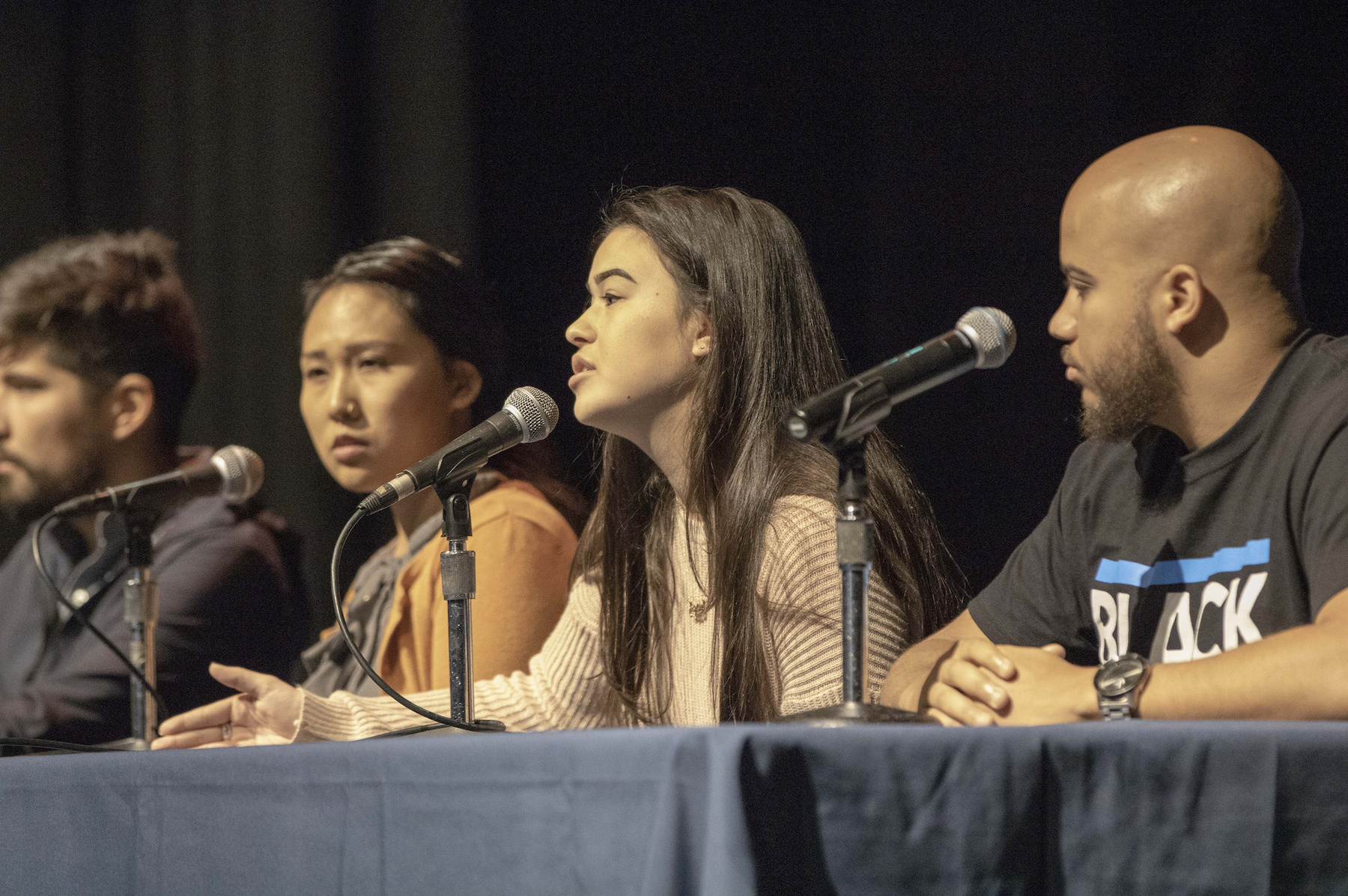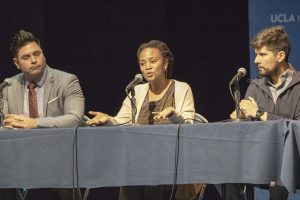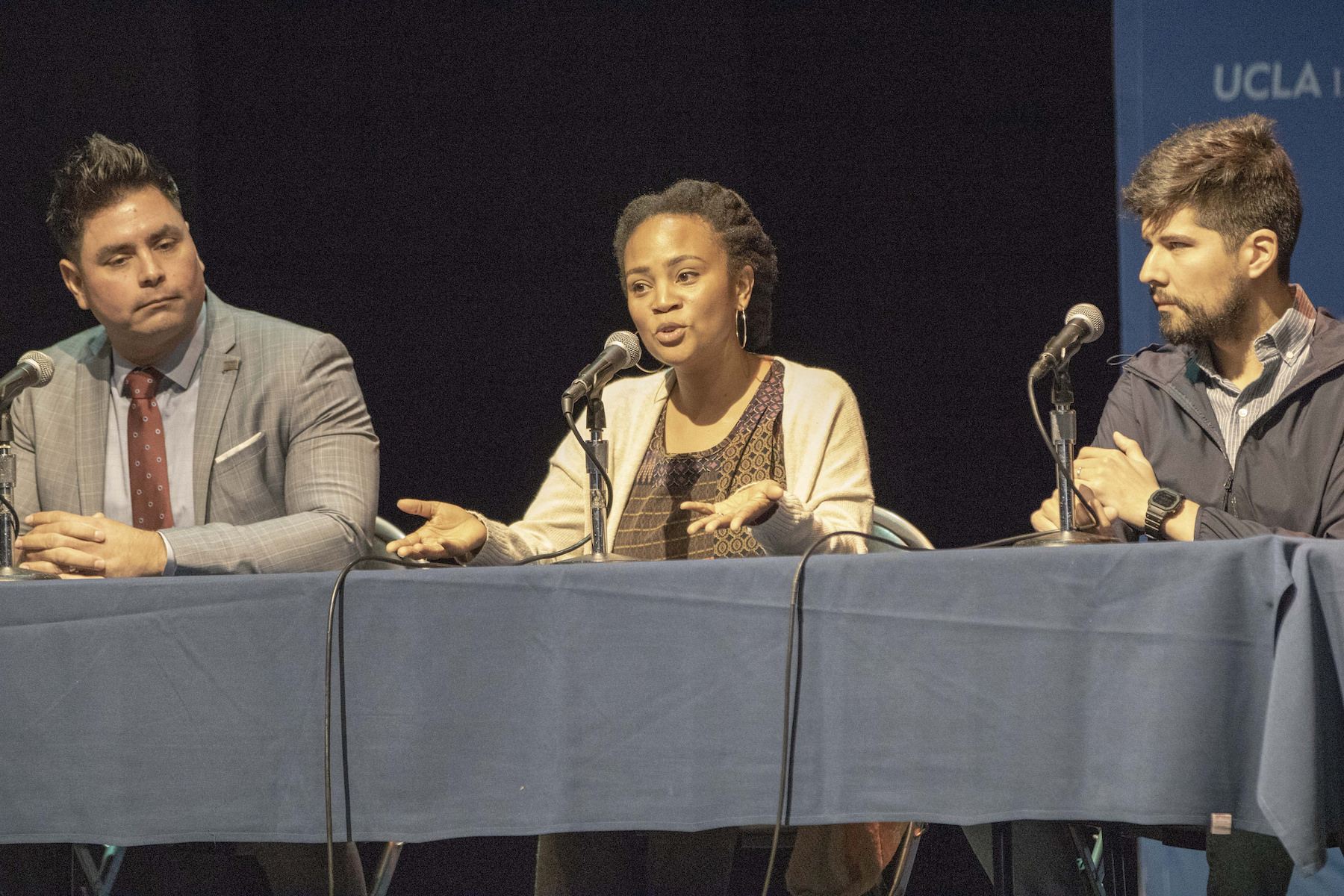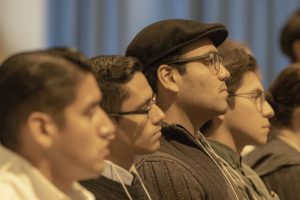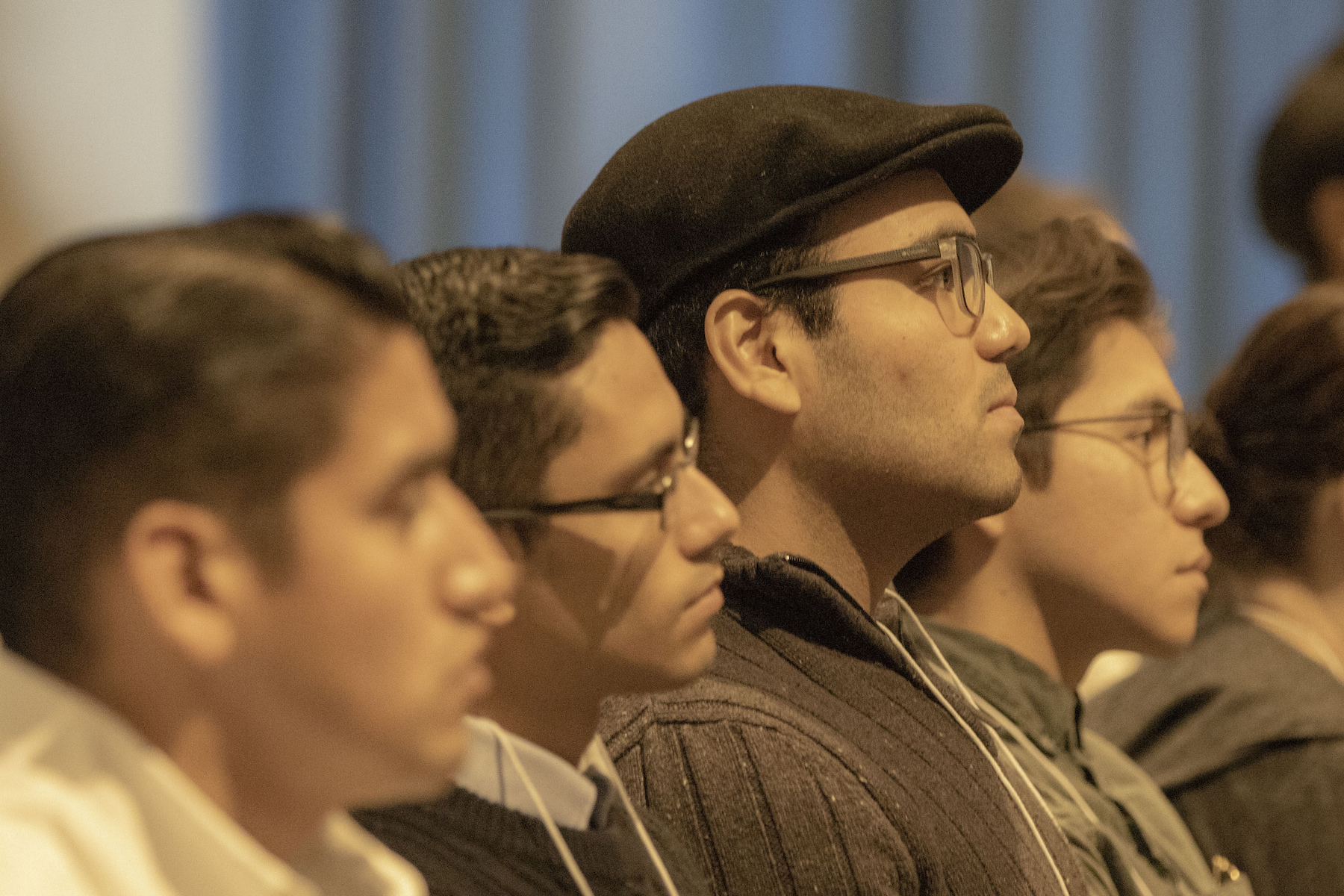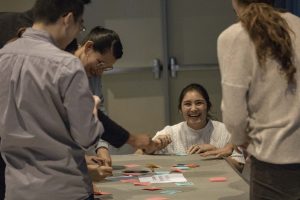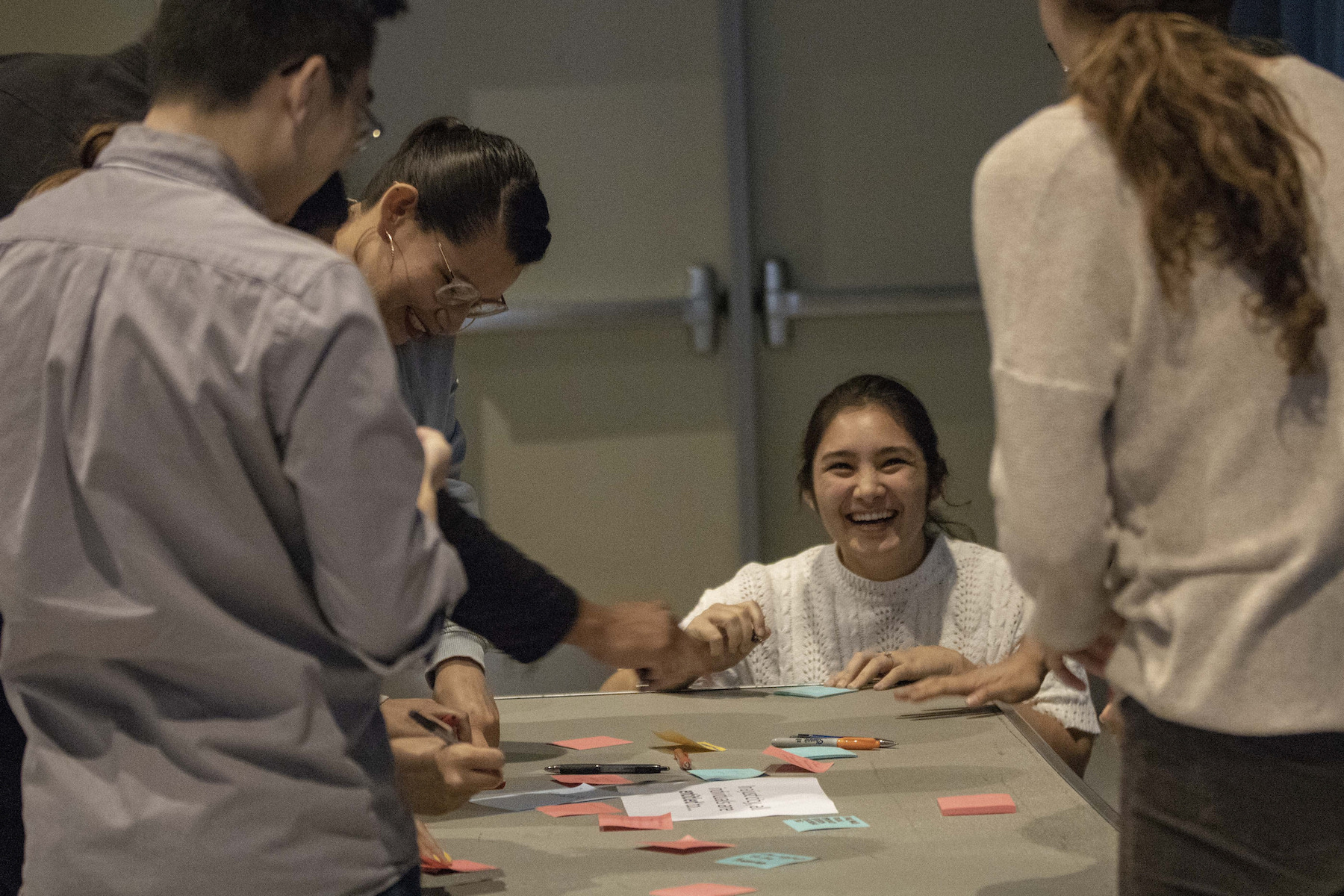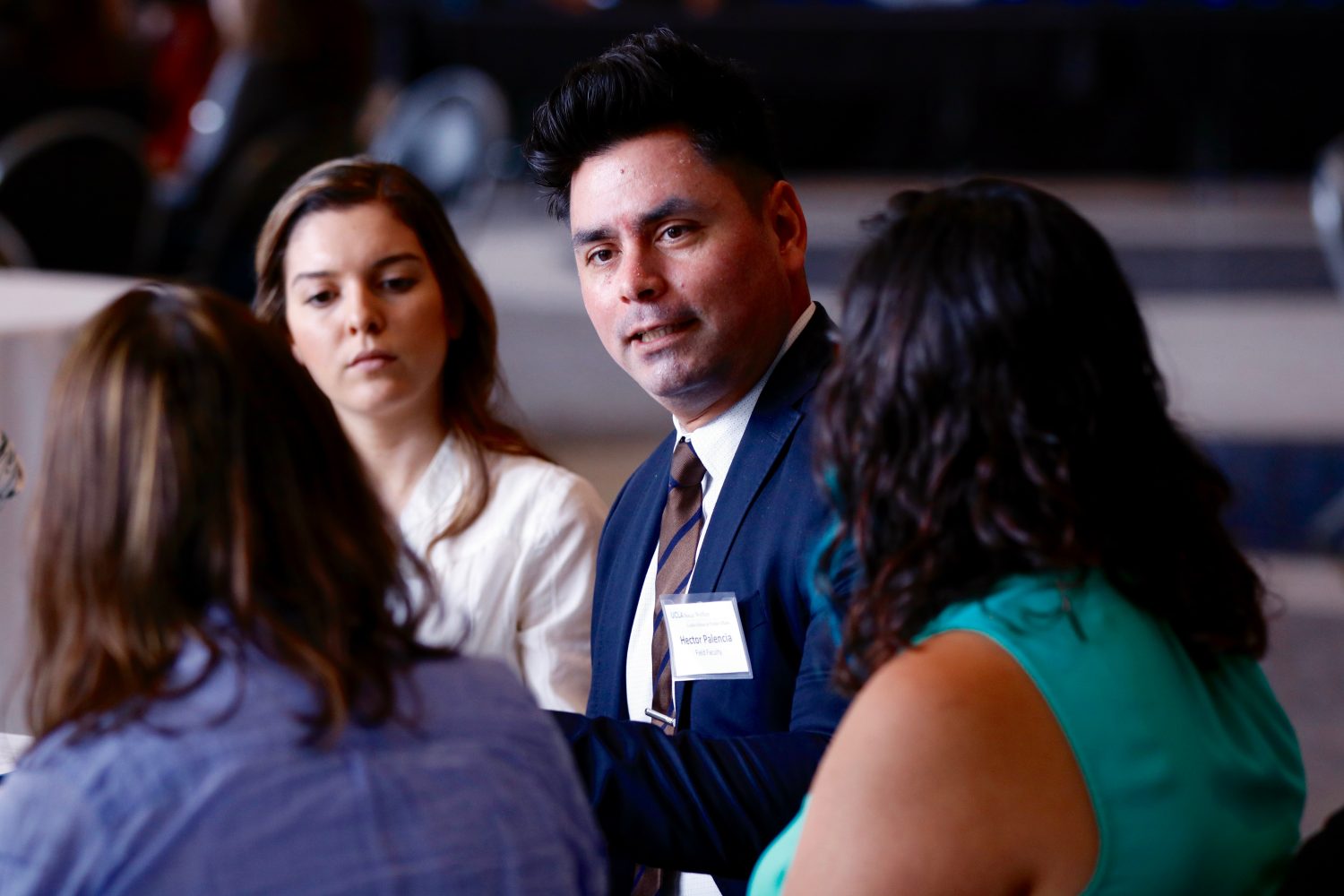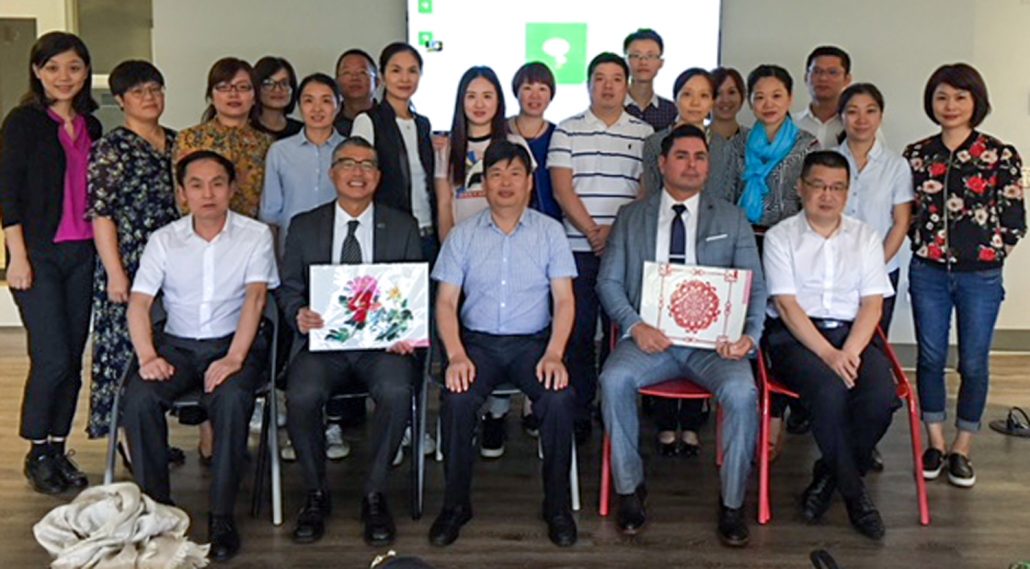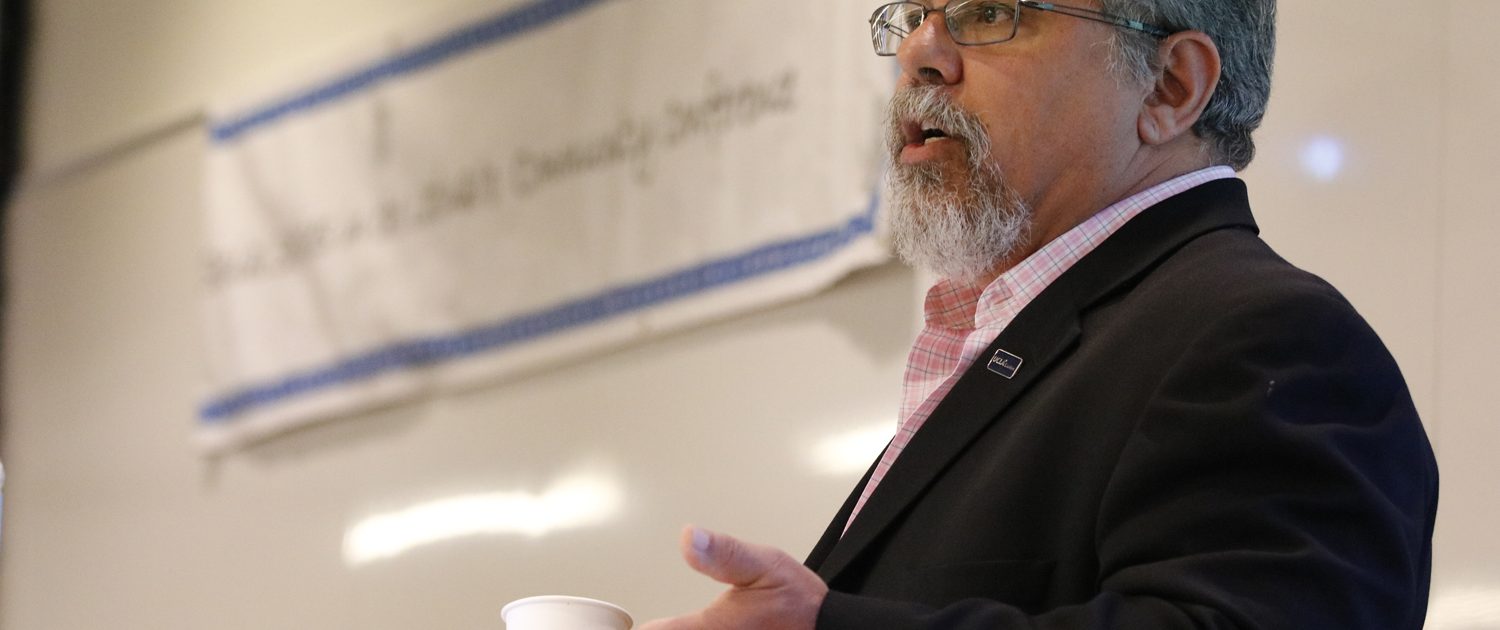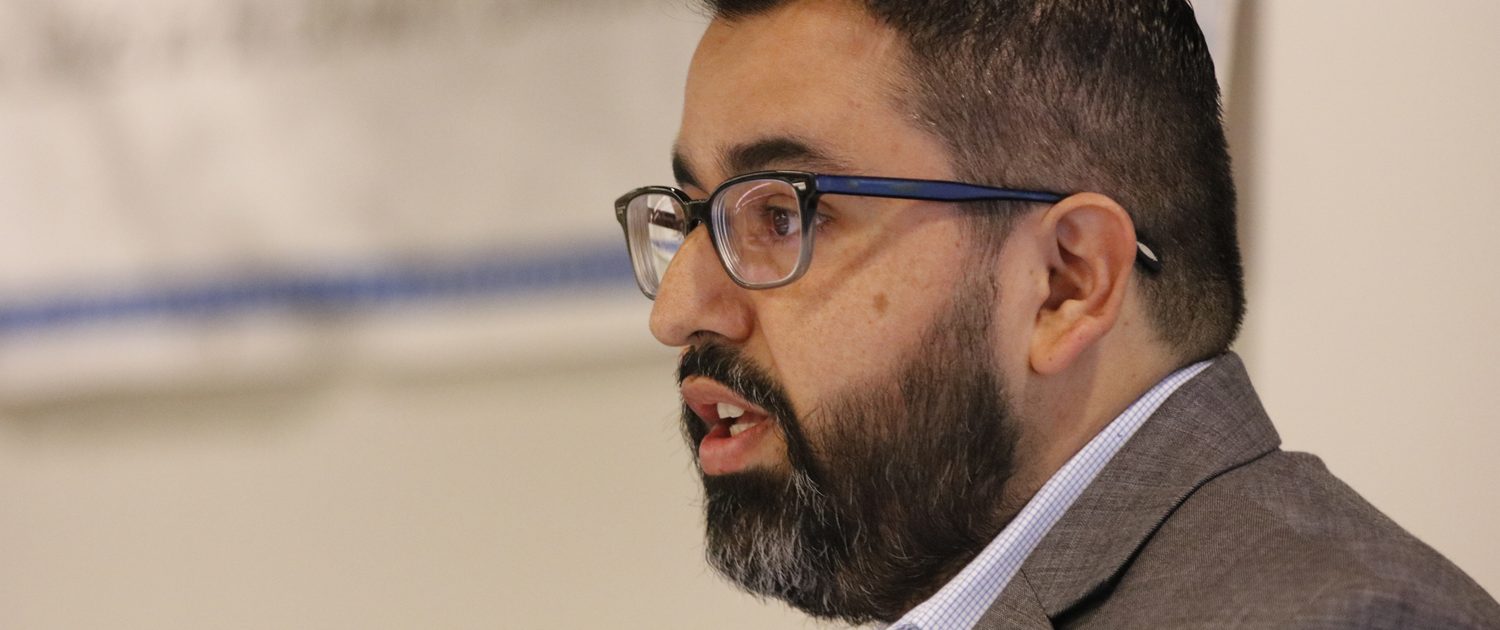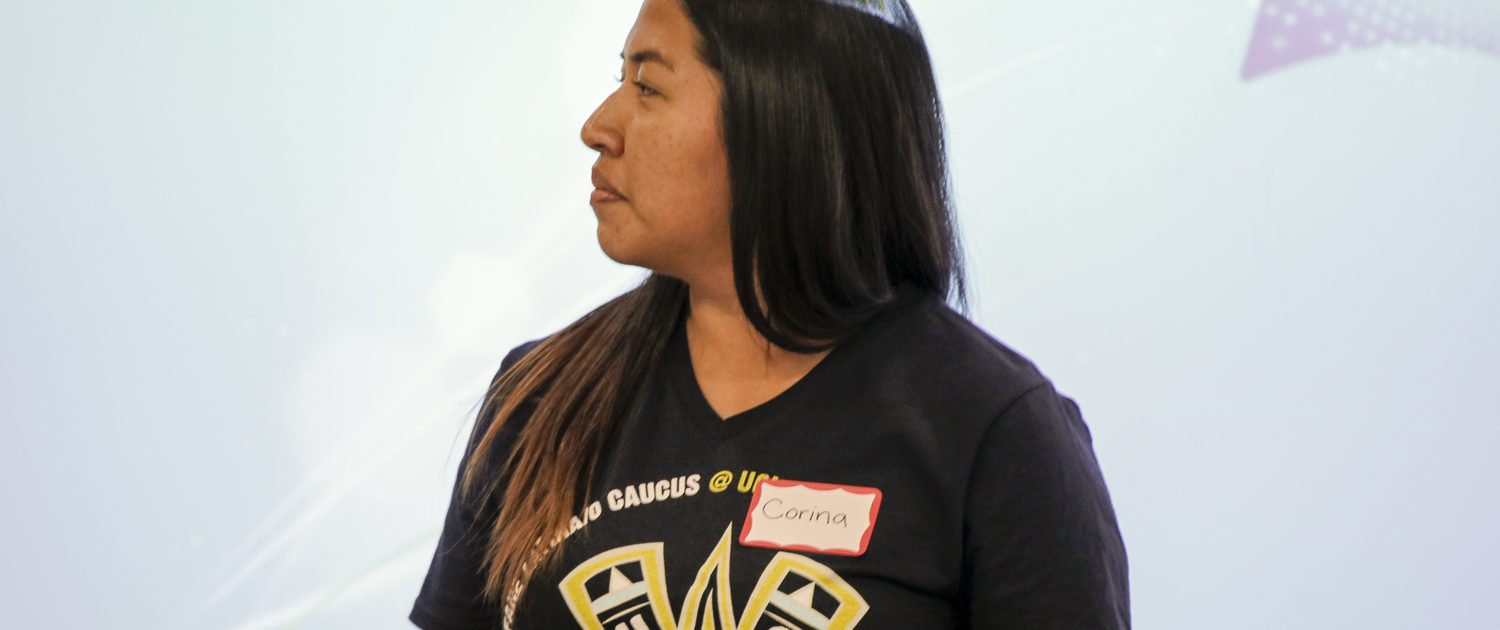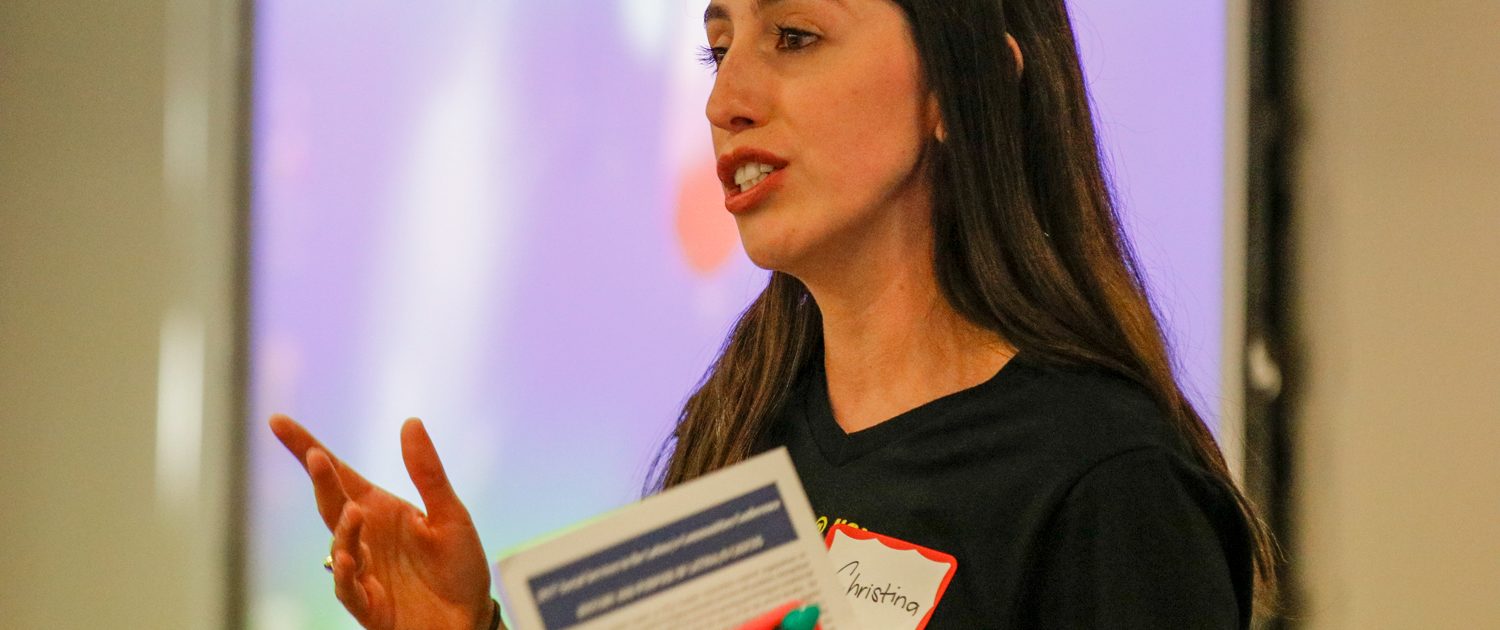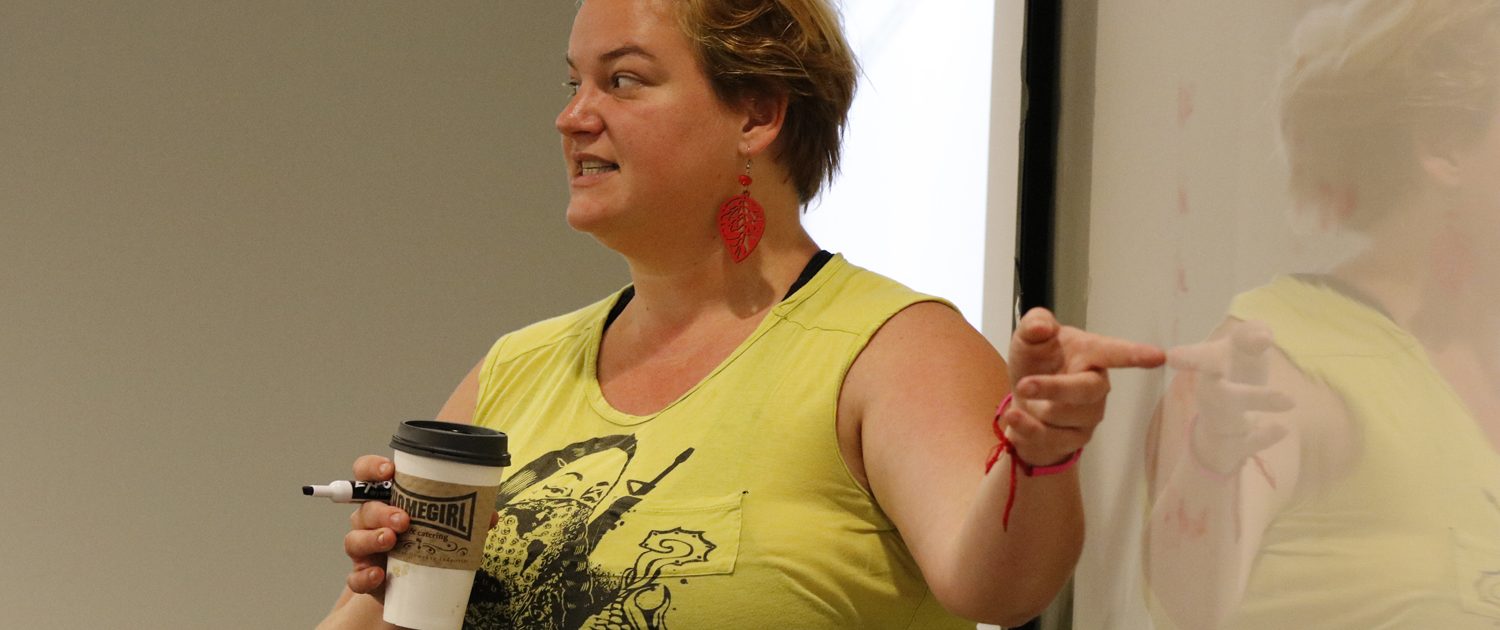By Mary Braswell
Eliza Franklin-Edmondson came to UCLA Luskin’s annual Diversity Fair to gather information about the School’s programs and priorities. She went home with so much more.
“I’m leaving here so full,” the prospective Urban Planning applicant said. “Being here and seeing the myriad of disciplines that give back to communities that are told that they have no value. … I’m leaving knowing that I have my purpose in life, my calling.”
For the third year, Public Policy, Social Welfare and Urban Planning invited prospective graduate students from all backgrounds to hear what sets the UCLA Luskin School of Public Affairs apart: a social justice ethos that is strengthened by a commitment to diversity. Key speakers included the chairs of each department, all of whom are professors in their respective fields.
“We are all united at Luskin by wanting to make our society and the world a better place for everyone,” Social Welfare chair Laura Abrams told the audience of about 125 prospective students.
The fair’s moderator, second-year planning student Dora Armenta, said she came to UCLA Luskin because it invests in students of color.
“We choose students that reflect our cities, that are diverse in backgrounds, experience, interests and skills,” Armenta said. “And because of these students, the program gets a little better each year.”
UCLA Luskin Urban Planning is highly ranked and has one of the most diverse student bodies in the nation, chair Vinit Mukhija said.
“We are the only program that is able to bring together excellence and diversity in urban planning,” he said. “Our program is made richer by that diversity, and it makes teaching in this department exciting for me and my colleagues.”
Public Policy students at UCLA Luskin develop deep analytical skills but also step into the real world, chair JR DeShazo said. They partner with clients to conduct research projects in fields such as health care, education, criminal justice and transportation, among many others, he said.
“In Public Policy, we really focus on understanding the programs and the policies that are supposed to meet the needs and provide the protections and services to our communities,” DeShazo said.
Social Welfare also pairs theory with practice, focusing on society’s most vulnerable populations, Abrams said, adding, “At UCLA, you get a set of interesting opportunities that really represent the breadth and the depth of the profession as a whole.”
Prospective student Laura Elaine Daza came from the Bay Area to attend the fair because “I want to be a decision-maker in my community.” As an immigrant, first-generation student and tenant rights advocate, she said, “I think it’s important to go to a program that reflects the communities that we come from and that provides you with the skills to give back to your community.”
The Dec. 1, 2018, Diversity Fair included financial aid counseling, a workshop for applicants preparing a statement of purpose, and a conversation with alumni who shared why they chose the Luskin School.
“I fell for the rankings,” said Rodrigo Garcia MURP ’15. “And I knew there was a big social justice component at Luskin whereas other schools that I was applying to didn’t have that component.”
“UCLA felt more like home,” said Sofia Espinoza MPP ’18, in contrast to other schools where “they dressed in suits and tried to schmooze you.” Espinoza said she appreciated the personal attention she received from Policy Professionals for Diversity and Equity (PPDE), which guided her through the application process.
PPDE was a co-sponsor of the fair, along with the Luskin D3 Initiative, Luskin Leadership Development, Social Welfare Diversity Caucus and Planners of Color for Social Equity.
The alumni panelists spoke of the skills they developed at UCLA Luskin and offered advice for how to maximize the graduate school experience. At the top of the list: Get off campus and out of the Westside.
“If you really want to do community work, then be in the community,” said Sheila Nem MURP ’15. “Get to know the landscape and really build those connections.”
“Be comfortable exploring opportunities that maybe you don’t even think are your interests,” said Diane Terry BA ’01 MSW ’04 Ph.D. ’12, urging the audience to jump into projects and research outside their disciplines. “That skill set, that perspective that you would get just from being out there, is going to be useful in some space at some time in your future career.”
UCLA Luskin offers the best of two worlds, said Hector Palencia MSW ’08, who is a field faculty member in Social Welfare. “The university is constantly alive,” a world-class research institution rich with opportunity, he said, but the Luskin School feels like a close-knit family.
“There are a lot of good programs out there. But how many of their faculty actually know their students well enough, by name, and how comfortable are the students to come back and look at this place like home?”
Isaac Bryan MPP ’18 cautioned the students that their time at the Luskin School would fly by.
“Land your solid GPA, learn your skill sets, but really build yourself a power base of relationships and connections to the city,” Bryan said. “Because here in Los Angeles I firmly believe that if you can solve a problem here and be a part of working on it, you can really take that anywhere. And that is something about UCLA Luskin that is really unique. So get busy.”
View additional photos on Flickr:
